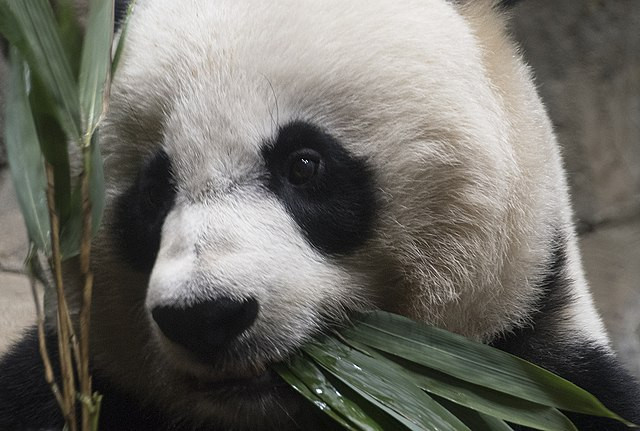Washington, D.C.'s National Zoo faces a notable absence for the first time in over two decades as its beloved giant pandas embark on a journey back to their native China. The zoo's three pandas, Tian Tian, Mei Xiang, and their cub Xiao Qi Ji, have begun their long voyage to Chengdu, culminating a chapter that began with their arrival in 2000.
Before the zoo's gates opened on the morning of their departure, the pandas were carefully placed into custom-made steel and plexiglass crates, crafted by FedEx for their protection and comfort during the 19-hour flight aboard the "FedEx Panda Express." The carefully planned transition saw them loaded onto a Boeing 777F aircraft, adorned with giant panda decals, signaling a heartfelt farewell from the District.
Amid the emotional goodbye, the creatures' welfare remains paramount. A veterinarian and two panda keepers accompany the trio, armed with an arsenal of 220 pounds of bamboo and a variety of fruits and specialized biscuits. Their diet, meticulously packed to mirror their habitual feeding routines, includes Tian Tian's favored sugar cane, Mei Xiang's preferred pears, and Xiao Qi Ji's choice of cooked sweet potato or butternut squash.
"These are extraordinary animals that have captivated the hearts of millions," shared Annalisa Meyer, a spokesperson for the zoo, reinforcing the importance of continuity in the pandas' care.
The endearing presence of giant pandas in D.C. spans back to the Cold War era, symbolizing a gift of diplomacy from China following President Nixon's historic visit in 1972. Ling-Ling and Hsing-Hsing were the first to arrive, with Tian Tian and Mei Xiang's tenure beginning in 2000. These charismatic envoys have not only drawn crowds but have also played a crucial role in conservation efforts, contributing to the giant panda's removal from the endangered species list.
Children like third graders William Mazzetti and Olivia Gauchat express a bittersweet sentiment, reflecting the attachment and understanding of the pandas' significance. "I wish they could stay longer," laments William, while Olivia adds, "I know that the pandas really do belong in China."
The zoo, which invested significantly in the pandas' conservation, has seen the pair's progeny, including Tai Shan, Bao Bao, and Bei Bei, return to China in adherence to the cooperative breeding agreement. With Xiao Qi Ji slated to join a breeding program and his parents set to enjoy retirement, the cycle continues.
As the community bids farewell, attention turns to the possibility of welcoming new pandas. "We're hopeful for the future," states Bryan Amaral, senior curator. The zoo plans to revamp the panda habitat with a $2.5 million investment, signaling optimism for new arrivals.
As negotiations with the China Wildlife Conservation Association loom, the district holds its breath, anticipating the arrival of the next ambassadors of conservation, hoping they will tread as gracefully into public hearts as their predecessors.




